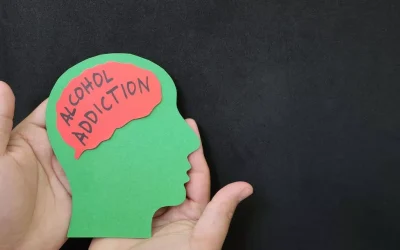Content
Dr Fox explains that the science behind this is that dangerous levels of enzymes are accumulating in the cells of your body when you drink alcohol, and they cannot be broken down. As a result, causes of alcohol intolerance liver tissue can become inflamed, leading to fibrosis, and ultimately cirrhosis and liver failure. There is also an increased risk of liver cancer if you continue to drink while intolerant.
On the other hand, it would be best for people with alcohol intolerance to stay away from alcohol completely, as this is the only way to avoid symptoms and side effects. An alcohol intolerance may be a blessing in disguise because greater tolerance for alcohol can lead to an alcohol use disorder (AUD), causing you drink more and more to achieve the same effect. Just as there are many reasons why your body may develop a tolerance for alcohol, there are just as many reasons why you may develop an alcohol sensitivity or alcohol intolerance. There are a number of factors that cause sudden changes in how you experience the effects of alcohol. These include environmental, social, learned, and ethnic factors, but there are others. You can also develop an alcohol intolerance due to largely biological reasons.
Alcohol Intolerance as a Result of Disease
By paying close attention to how one’s body reacts to alcohol, it becomes possible to manage and navigate alcohol intolerance with greater awareness and care. It is important to make a distinction between an allergic reaction to some of the components of alcoholic beverages and a true alcohol allergy. They may even be caused by exposure to alcohol from sources other than alcoholic beverages.
Alcohol intolerance is an intriguing condition, eliciting immediate and often uncomfortable reactions to alcoholic beverages. Characterized by symptoms like skin flushing, stuffy nose, and more severe reactions for some, it can turn a casual drink into an unpleasant experience. Unlike allergies, which involve an immune system response, alcohol intolerance primarily stems from a genetic predisposition affecting the body’s ability to metabolize alcohol efficiently. Alcohol intolerance is relatively uncommon, and many people who have problems drinking alcohol actually have an alcohol allergy — not alcohol intolerance.
Alcohol Intolerance: Causes, Symptoms, & Management
However, the acetaldehyde buildup caused by alcohol intolerance does not last long enough to cause truly dangerous effects unless you drink frequently. Its temporary effects are still uncomfortable and can cause headache, nausea, stuffiness and other unpleasant symptoms. If you experience severe symptoms https://ecosoberhouse.com/ of alcohol allergy or intolerance it is important you limit or abstain from alcohol while you seek a diagnosis from your GP or allergy specialist. A sudden intolerance to alcohol is possible if you begin using a medication that causes alcohol intolerance or develop a disease that causes it.

People who find they become intoxicated off a few drinks should limit their consumption accordingly, and not try to “keep up” with others. This deficiency affects 8% of the world’s population, but is much more common in people of East Asian descent (at 35-40% of the Asian population). The helpline at AddictionResource.net is available 24/7 to discuss the treatment needs of yourself or a loved one.